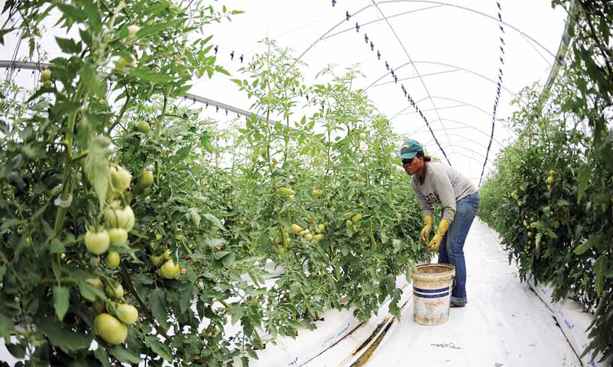The advent of the 4IR has introduced business disruption as a strategy for market entry and penetration. The COVID-19 pandemic has however brought about disruption on a scale that is unprecedented. At the end of March 2020, LEA conducted a snap survey to assess the impact of COVID-19 on LEA registered SMMES across the LEA branches country-wide.
The survey covered 382 enterprises, and revealed the following notable highlights;
Ø 63% of businesses surveyed had suspended operations, with an average reduction in monthly revenue of 47%. The 382 enterprises have 2,669 employees, with a total wage bill of P5.9 million.
Ø The tourism sector, which accounts for 27% of the jobs in the survey, bore the brunt of the impact, with a 72% revenue loss in March 2020, which put 729 jobs at risk.
The 142 (37%) enterprises that remained operational faced the following challenges that jeopardised their viability.
· Challenges in importing raw materials.
· Reduced revenue due to COVID-19 related restrictions.
· Inability to pay fixed costs (salaries, rentals, loans etc).
SUPPORT EXTENDED TO SMMEs BY LEA
Business Continuity:
LEA assisted enterprises that supply essential services to procure permits for their staff, as well as facilitating imports of raw materials for the production of hand sanitisers and medical gowns. Businesses were also assisted to collaborate so as to optimise resources.
Market Access
LEA facilitated enterprises to expedite the testing and certification of essential products at Botswana Bureau of Standards, to ensure that they could supply products of the required quality. Thereafter, the businesses were supported to secure orders in the amount of P2 312 519.35 for COVID-19 related goods, ranging from hand sanitizers, surgical gloves and masks, face shields, cleaning chemicals as well as foodstuffs and horticultural produce.
Access to Financial Relief
Of the 382 SMMEs surveyed, 209 had loans, with a total loan balance of P130,197,045. Three Hundred (300) SMMEs have been assisted with applications to BURS for the wage subsidy, which helped avert job losses, especially in the tourism sector, which accounts for 61% of the loan balance. A further 19 businesses were assisted to apply for working capital and loan repayment holidays at CEDA and commercial banks.
Assistance to SMMEs Operating In LEA Incubators
Rental holidays of between three (3) and six (6) months have been extended to Twenty-four (24) SMMEs operating at the LEA Incubators who have been adversely impacted by COVID-19. This will assist in protecting jobs and expediting business recovery post COVID-19 related restrictions.
Donation Towards COVID-19 Fund
Through the Glen Valley Horticulture Incubator LEA has donated 170kg of tomatoes to the Government COVID-19 Relief fund, to be used at health facilities and other Government institutions. The farm continues to produce, and supplies retail stores in Gaborone to alleviate shortages of vegetables. LEA has partnered with BIUST to manufacture soap and liquid detergent as contribution towards the fight againt Corona virus. 5000 bar soaps and 4000 (750ml) bottles have already been donated to the Government to distribute amongst communities in the Central region.
Also, the LEA Executive and Senior Management have contributed 10% of their basic salary for three (3) months to the COVID 19 Relief Fund. Additionally, the LEA Board Chairman and Vice Chairman have offered to forfeit their sitting allowances for the 2020/21 financial year.
FUTURE OPPORTUNITIES
Whilst COVID-19 has wreaked havoc in the economy, it has also provided an opportunity for enterprises to adapt, innovate and exploit new opportunities. Thirteen (13) enterprises have been identified for assistance with scaling up to compete sustainably in the production of medical consumables and personal hygiene products. This support will also be extended to enterprises that provide goods and services that are imported in large quantities, and will be supported through the following projects.
· Horticulture Promotion Projects
Plans are at an advanced stage, and partners have been identified to develop the horticulture sector at strategic locations across the county, through provision of infrastructure and expertise that will enable the farmers to produce various crops for the local and export market. Three locations have been identified for this purpose and clients with potential to scale up are being considered to occupy the land. LEA will use a cluster model and coordinate the cropping plan to facilitate import substitution.
· Small-Stock Training and Production Incubator
The small stock incubator is planned for Ghanzi, and will provide training with production to small stock potential farmers. Graduates from the incubator will be supported to set up commercial small stock production businesses across the country. Furthermore, LEA plays a role at the Lobu small stock farm, and will support farmers through virtual incubation to ensure business growth.
HARNESSING ICT
It is imperative for enterprises to trade through digital channels in order to remain relevant in the 4IR. LEA is working towards availing access to online resources tailored towards building SMMEs capabilities, with focus on business continuity, to assist with business recovery. On the overall, in order to leapfrog and leverage on ICT as a business enabler, we have partnered with stakeholder institutions to collectively explore value chain opportunities for digitization and online trading platforms for producers to link with the retailers and other sources of markets. The plan is to pilot with the horticultural produce.
